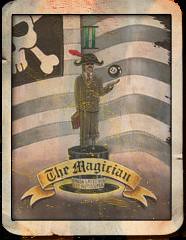 When is Branding Profitable?
When is Branding Profitable?Branding is a dirty word to many marketers who have had a bad experience with somebody selling a service or a logo design. I’ve had bad relationships, but I’m not giving up on women. Branding shouldn’t be a bad word just because some salesperson guised as a branding expert sucked at your pocketbook. I’m sorry you got taken for an expensive ride, however, there is a profitable role for branding. In fact, when branding works it is when you make the biggest profits.
Modern consumers suffer from constant overchoice…they have too many products to choose between, everywhere they look. In a supermarket, you’re confronted with 14 different makers of BBQ sauce in 9 different flavors. I never look at all my choices.
Last week I was asked to bring BBQ sauce to a friend’s house. So, I purchased a gourmet BBQ sauce because I wanted to impress his wife…she thinks I’m a wing-nut and a bad influence on her husband. If the BBQ sauce were for my own chicken, I’d start by looking at what’s on sale. But whatever the case is, I start shopping by narrowing my choices.
Studies have shown that people who claim “I always buy what’s on sale or the lowest price item” are liars. Maybe lying is too harsh of a word here…Nobody died because of their reporting error…when their carts were analyzed, 80% of these people had more than half of their cart filled with products that were neither on sale nor the lowest price. An easy explanation is that these folks have a different relationship with the word always than I do…for these folks always means nice to do. But even still, the vast majority of folks making this claim actually choose what’s on sale or the lowest price item less than half the time.
How does this happen? Overchoice. We don’t like to think. We buy what we bought last time. We like some products more than others. Sure, many of us play Soduko, solve crossword puzzles or play video games like Myst, but that’s fun thinking…time we set aside for problem solving. In a supermarket customers aren’t scrutinizing their choices for an optimal score, but for easily getting through the chore of grocery shopping. As marketers this works in our favor and this is where branding comes into profitable play.
We don’t like to think. Why is this important? In most cases, consumers limit their consideration to the products that are familiar in some way. We like what we already know. Further studies have shown that these consumers sometimes literally don’t see products that they aren’t familiar with. When presented with overchoice we only see what we already know.
Part of leveraging branding is presenting yourself consistently, showing customers that you’re already familiar. Why are bad-acting celebrities valuable? They are already familiar. In an attention economy recognition is valuable.
Leverage your recognition; Leverage your desirability. Branding is consistently communicating and delivering what you stand for in a profitable way.
When a customer buys a second product from you…that’s when you have a real relationship and the birth of a profitable brand. Encouraging the second purchase is branding. Thinking in terms of the life-time value of a customer is branding.
Branding is about leveraging your existing equities. “Branding” that doesn’t pay dividends on your return on investment isn’t branding, it’s either incompetence or a scam.
Thank you for your attention and considerations.
Ben Mack
Author, Think Two Products Ahead
"Creating loyalty beyond reason and moving from irreplaceable to irresistible is job #1 for all marketers today. Ben's book will help you get there."
Kevin Roberts, CEO Saatchi & Saatchi Worldwide


0 Comments:
Post a Comment
<< Home